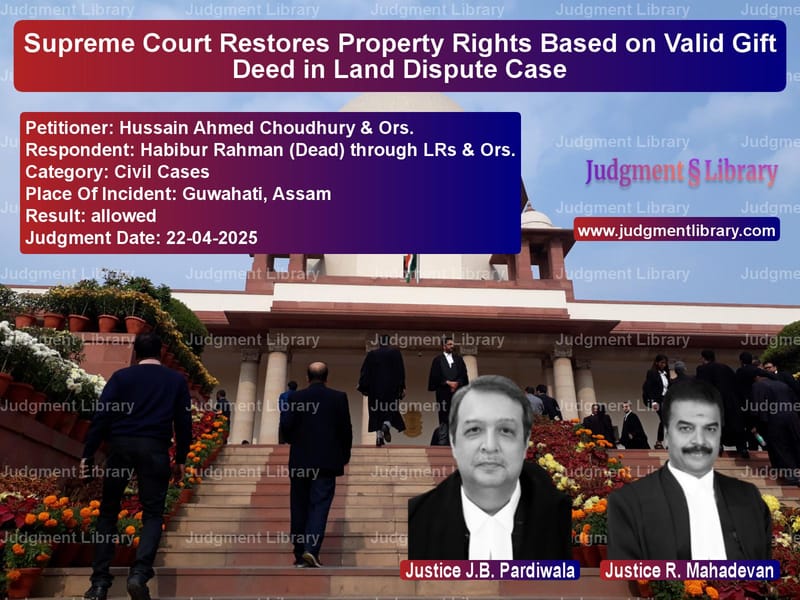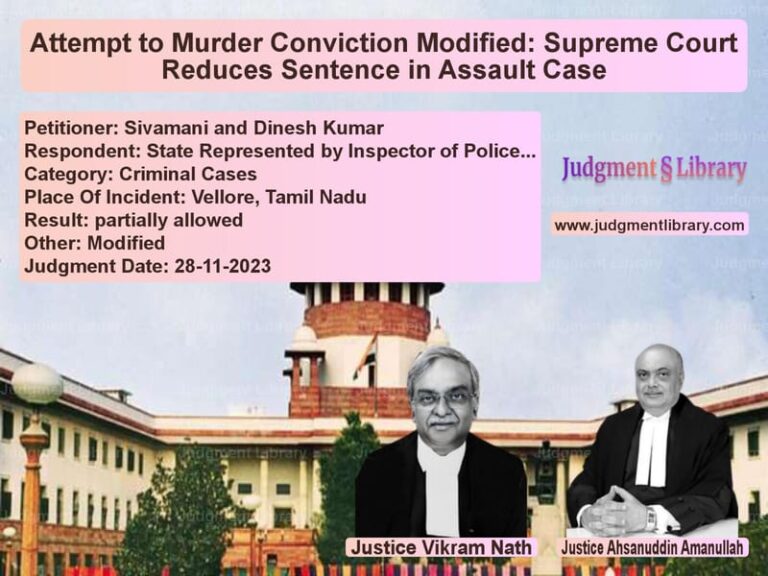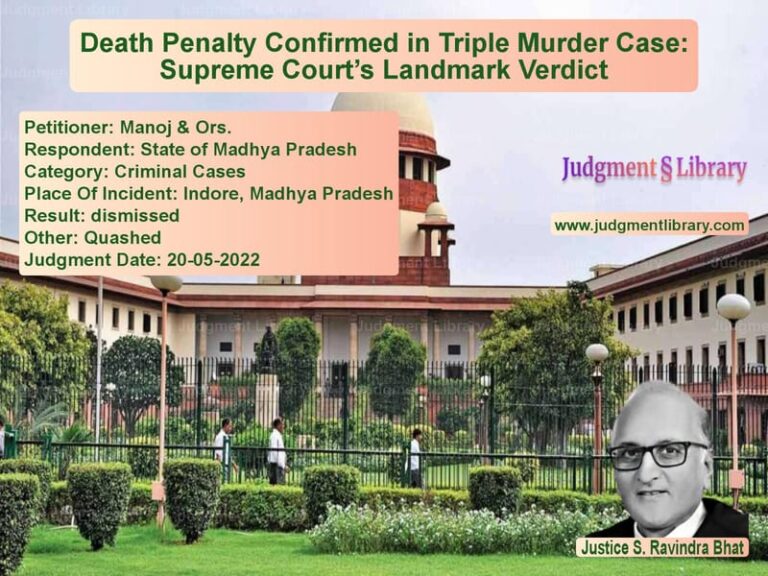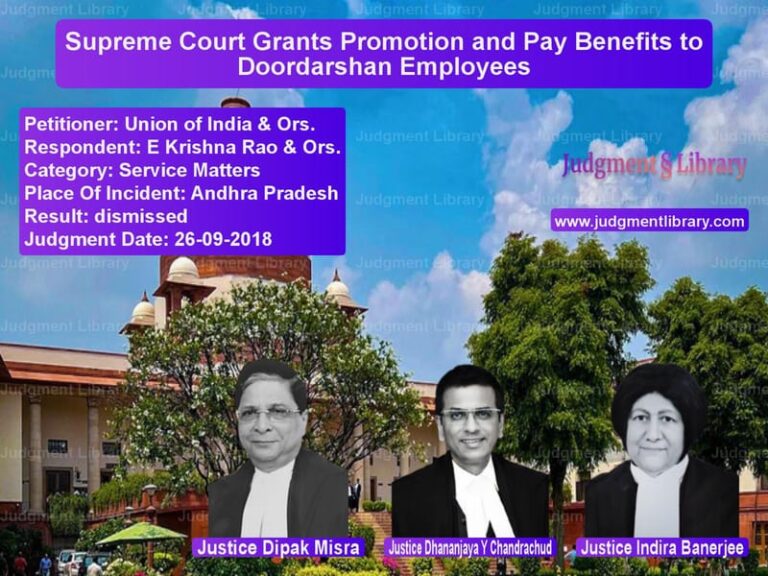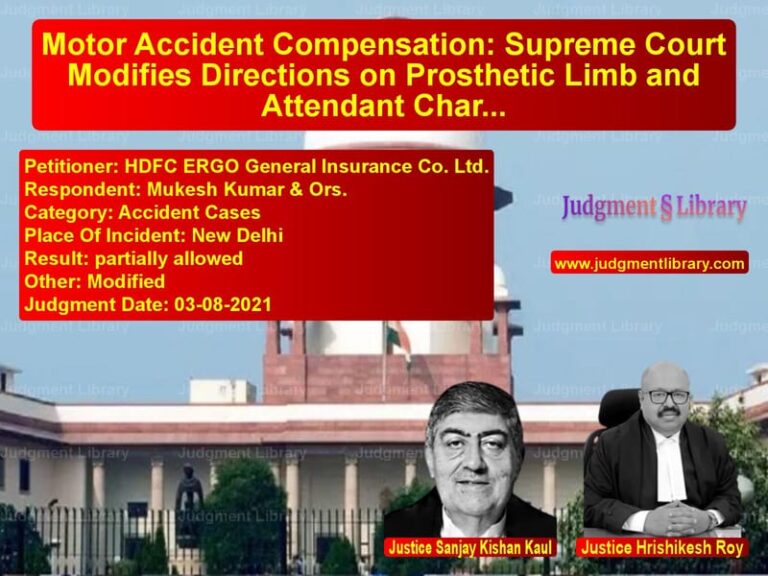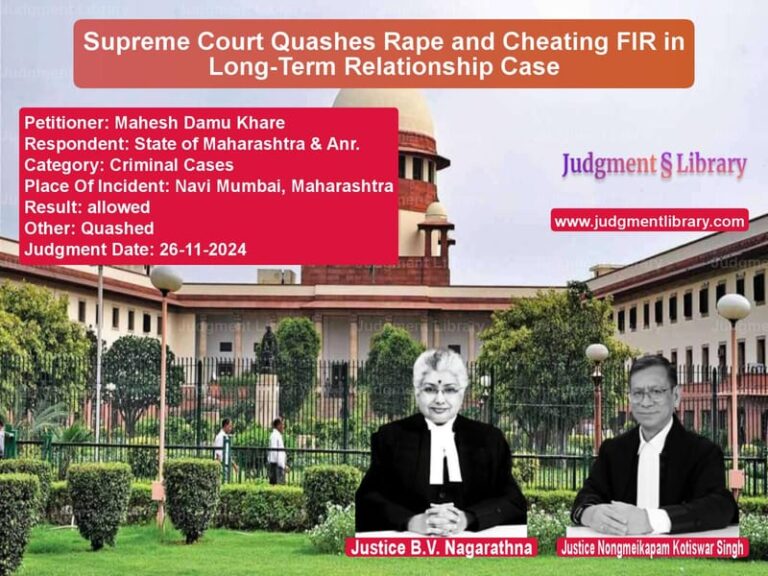Supreme Court Restores Property Rights Based on Valid Gift Deed in Land Dispute Case
The Supreme Court of India recently delivered a significant judgment in the case of Hussain Ahmed Choudhury & Ors. versus Habibur Rahman (Dead) through LRs & Ors., addressing a long-standing property dispute centered around the validity of a Gift Deed executed in 1958. The case, which traversed through multiple judicial forums over decades, culminated in a decisive ruling that reinstated the rights of the original plaintiffs, overturning the High Court’s decision.
The dispute originated from a registered Gift Deed dated 26.04.1958, executed by Haji Abdul Aziz Choudhury in favor of his grandson, Siraj Uddin Choudhury. The deed was necessitated because, under Muslim law, the grandson would not have been eligible to inherit the property after his father’s death. The appellants, legal heirs of Siraj Uddin, claimed ownership of the suit land based on this Gift Deed. However, the respondents contested this claim, asserting rights through a subsequent sale deed dated 05.05.1997, executed by the original defendants (brothers and sisters of Siraj Uddin’s deceased father).
The Trial Court and the First Appellate Court had ruled in favor of the appellants, upholding the validity of the Gift Deed and dismissing the respondents’ claims. However, the High Court reversed these decisions, holding that the appellants’ suit was flawed because they had not sought the cancellation of the subsequent sale deed. The High Court’s reasoning was that without challenging the sale deed, the appellants could not seek a declaration of their title over the property.
The Supreme Court, in its judgment authored by Justices J.B. Pardiwala and R. Mahadevan, meticulously analyzed the legal framework governing such disputes. The Court emphasized that the appellants, not being parties to the subsequent sale deed, were not obligated to seek its cancellation under Section 31 of the Specific Relief Act, 1963. The Court noted, “A plaintiff who is not a party to a decree or a document, is not obligated to sue for its cancellation. This is because such an instrument would neither be likely to affect the title of the plaintiff nor be binding on him.”
The Court further clarified the distinction between seeking cancellation of a deed and seeking a declaration that it is not binding. “Where the executant of a deed wants it to be annulled, he has to seek cancellation of the deed under Section 31 of the Act, 1963. But if a non-executant seeks annulment of a deed, he has to only seek a declaration that the deed is invalid, or non est, or illegal or that it is not binding on him,” the judgment stated.
The Supreme Court also addressed the High Court’s oversight in not considering the concurrent findings of the lower courts regarding the validity of the Gift Deed. The Court remarked, “The High Court having concurred with the Courts below on the legality and validity of the Gift Deed should not have dismissed the suit only on the ground that the plaintiff failed to pray for cancellation of the sale deed.”
In its final ruling, the Supreme Court allowed the appeal, set aside the High Court’s judgment, and restored the original decree passed by the Trial Court and affirmed by the First Appellate Court. The Court held that the appellants had successfully established their title over the suit property based on the valid Gift Deed, and the subsequent sale deed executed by the original defendants was void ab initio as they had no saleable interest in the property.
This judgment reaffirms the principle that a person claiming title through a prior valid instrument need not seek cancellation of a subsequent instrument executed by strangers to the title. It also underscores the importance of reading the plaint as a whole to discern the actual relief sought, rather than dismissing a suit on technical grounds.
Petitioner Name: Hussain Ahmed Choudhury & Ors..Respondent Name: Habibur Rahman (Dead) through LRs & Ors..Judgment By: Justice J.B. Pardiwala, Justice R. Mahadevan.Place Of Incident: Guwahati, Assam.Judgment Date: 22-04-2025.Result: allowed.
Don’t miss out on the full details! Download the complete judgment in PDF format below and gain valuable insights instantly!
Download Judgment: hussain-ahmed-choudh-vs-habibur-rahman-(dead-supreme-court-of-india-judgment-dated-22-04-2025.pdf
Directly Download Judgment: Directly download this Judgment
See all petitions in Property Disputes
See all petitions in Contract Disputes
See all petitions in Landlord-Tenant Disputes
See all petitions in Succession and Wills
See all petitions in Specific Performance
See all petitions in Judgment by J.B. Pardiwala
See all petitions in Judgment by R. Mahadevan
See all petitions in allowed
See all petitions in supreme court of India judgments April 2025
See all petitions in 2025 judgments
See all posts in Civil Cases Category
See all allowed petitions in Civil Cases Category
See all Dismissed petitions in Civil Cases Category
See all partially allowed petitions in Civil Cases Category

